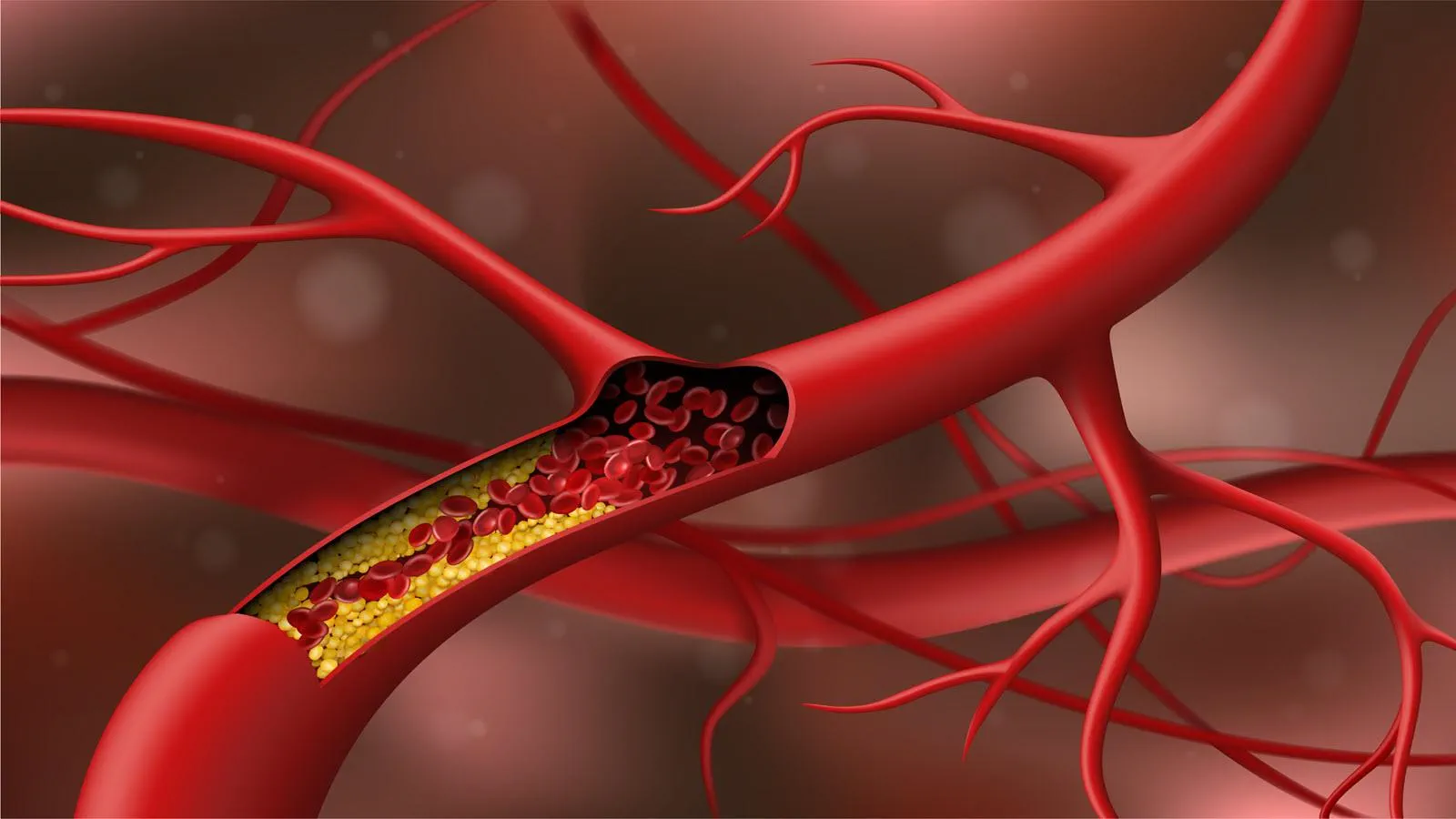
Cholesterol is a word that often evokes a negative connotation in the world of health and wellness. We are often warned about the dangers of high cholesterol and its association with heart disease. However, there is much more to cholesterol than meets the eye. As a vital molecule found in every cell of our bodies, cholesterol plays essential roles in the functioning of our organs, production of hormones, and digestion of fats.
In this article, we will explore nine intriguing facts about cholesterol that might surprise you. From its classification as a lipid to its role in brain health, cholesterol is a complex and fascinating substance. So, let’s dive in and uncover some lesser-known information about cholesterol that will change the way you think about it.
Key Takeaways:
- Cholesterol is essential for our bodies, playing a vital role in hormone production and cell structure. It’s not all bad, and understanding its types and sources can help us maintain a healthy balance.
- Lifestyle choices and genetics can impact our cholesterol levels. Making healthy changes and getting regular check-ups can help manage cholesterol and reduce the risk of heart disease.
Cholesterol is essential for life
Contrary to popular belief, cholesterol is not entirely bad for our bodies. In fact, it is vital for our survival. Cholesterol plays a crucial role in the production of hormones, vitamin D, and bile acids, which aid in digestion. It is also a structural component of cell membranes, contributing to their stability and permeability.
There are two types of cholesterol
Cholesterol is classified into two types: high-density lipoprotein (HDL) and low-density lipoprotein (LDL). HDL cholesterol is often referred to as “good” cholesterol as it helps remove excess cholesterol from the arteries and transports it to the liver for elimination. On the other hand, LDL cholesterol is known as “bad” cholesterol as it can build up in the arteries and lead to blockages.
Cholesterol is not only found in animal products
While cholesterol is commonly associated with animal-based foods like eggs and meat, our bodies can also produce cholesterol on their own. In fact, dietary cholesterol has less impact on our overall cholesterol levels than the saturated and trans fats we consume.
Genetics play a role in cholesterol levels
Our genetics can influence how our bodies handle cholesterol. Some individuals have a genetic predisposition to produce more LDL cholesterol or have difficulties processing it, which can increase their risk of developing high cholesterol levels.
Lifestyle factors affect cholesterol levels
Unhealthy lifestyle habits such as a diet high in saturated and trans fats, lack of physical activity, smoking, and excessive alcohol consumption can contribute to elevated cholesterol levels. Making positive changes in these areas can help improve cholesterol profiles.
High cholesterol can be asymptomatic
One of the dangers of high cholesterol is that it often doesn’t present any symptoms. Many people may have high cholesterol levels without even knowing it. Regular cholesterol screenings are crucial to detect and manage potential issues before they escalate.
Cholesterol and heart disease are linked
Elevated levels of LDL cholesterol in the bloodstream can contribute to the development of atherosclerosis, a condition characterized by the buildup of plaque in the arteries. This can eventually lead to heart disease, heart attacks, and strokes.
Lifestyle modifications can help manage cholesterol
Adopting a healthy lifestyle can have a significant impact on cholesterol levels. Eating a balanced diet rich in fruits, vegetables, whole grains, and lean proteins, regular exercise, maintaining a healthy weight, managing stress levels, and avoiding smoking are all effective ways to manage cholesterol.
Medications can aid in cholesterol management
In some cases, lifestyle modifications alone may not be sufficient to control cholesterol levels. In such instances, healthcare providers may prescribe cholesterol-lowering medications, such as statins, to help manage cholesterol effectively.
In conclusion, understanding cholesterol and its impact on our bodies is crucial for maintaining good health. Incorporating healthy lifestyle habits and working closely with healthcare professionals can ensure that our cholesterol levels remain within a healthy range. So, keep these 9 intriguing facts about cholesterol in mind and take charge of your cardiovascular health!
Conclusion
In conclusion, cholesterol is an essential substance that plays a crucial role in our bodies, despite its negative association with heart disease. Understanding the facts about cholesterol can help demystify common misconceptions and promote overall health. Remember that not all cholesterol is bad, and our bodies need it for various biological functions. By maintaining a healthy lifestyle and making informed choices, we can keep our cholesterol levels in check and minimize the risk of related health issues.
FAQs
Q: What is cholesterol?
A: Cholesterol is a waxy substance found in the cells of our bodies. It is involved in various bodily functions, including hormone production and the formation of cell membranes.
Q: What are the different types of cholesterol?
A: There are two main types of cholesterol: high-density lipoprotein (HDL) and low-density lipoprotein (LDL). HDL is often referred to as “good” cholesterol as it helps remove excess cholesterol from the bloodstream, while LDL is known as “bad” cholesterol because high levels of it can contribute to plaque formation in the arteries.
Q: Are high cholesterol levels always harmful?
A: No, not all high cholesterol levels are harmful. It depends on the balance between HDL and LDL cholesterol. An imbalance, with high levels of LDL and low levels of HDL, can increase the risk of heart disease. However, high levels of HDL cholesterol are actually beneficial and can lower the risk of heart disease.
Q: Can I lower my cholesterol levels through diet and lifestyle changes?
A: Yes, making dietary and lifestyle changes can have a positive impact on cholesterol levels. A healthy diet rich in fruits, vegetables, whole grains, and lean proteins, along with regular exercise and avoiding tobacco smoking, can help lower LDL cholesterol and raise HDL cholesterol.
Q: Are cholesterol-lowering medications necessary?
A: In some cases, lifestyle changes may not be sufficient to lower cholesterol levels to a healthy range. In such situations, cholesterol-lowering medications may be prescribed by a healthcare provider to manage cholesterol levels effectively.
Q: Can genetics influence cholesterol levels?
A: Yes, genetics can play a significant role in cholesterol levels. Some individuals may have a genetic predisposition to high cholesterol, which can require closer monitoring and management.
Q: Can I check my cholesterol levels at home?
A: Yes, there are at-home cholesterol testing kits available that can provide a general indication of cholesterol levels. However, it is always advisable to consult with a healthcare professional for accurate and comprehensive testing.
Q: Can certain medical conditions affect cholesterol levels?
A: Yes, certain medical conditions like diabetes, thyroid disorders, and kidney disease can impact cholesterol levels. It is essential to manage these conditions effectively to maintain healthy cholesterol levels.
Q: Is cholesterol always bad for the body?
A: No, cholesterol is not inherently bad for the body. It is a vital component required for various physiological functions. The key is to maintain a balance and focus on maintaining healthy levels of HDL and LDL cholesterol.
Cholesterol facts intrigue health-conscious individuals, but questions remain. Medications like cholesterol-lowering drugs and lipid-lowering agents help manage levels, but knowing their benefits and risks is crucial. Heart health depends on understanding cholesterol's role and making informed decisions. Explore more eye-opening facts about these treatments and the heart itself to take control of your well-being.
Was this page helpful?
Our commitment to delivering trustworthy and engaging content is at the heart of what we do. Each fact on our site is contributed by real users like you, bringing a wealth of diverse insights and information. To ensure the highest standards of accuracy and reliability, our dedicated editors meticulously review each submission. This process guarantees that the facts we share are not only fascinating but also credible. Trust in our commitment to quality and authenticity as you explore and learn with us.


